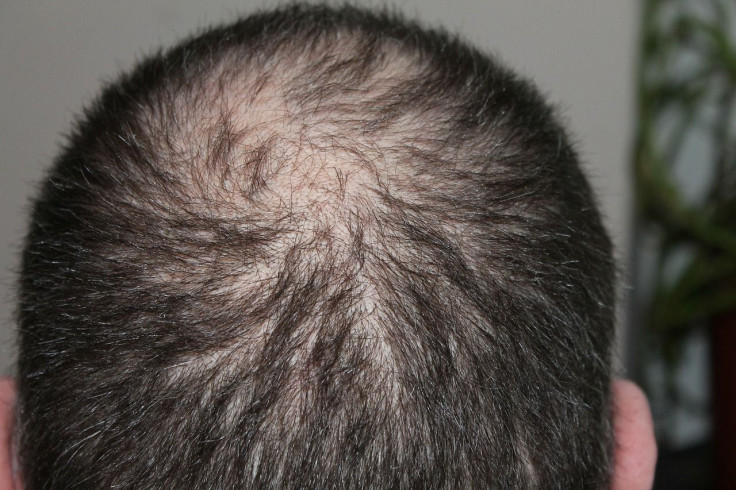Patients With Alopecia Areata, Male Pattern Baldness May Restore Hair Loss With Topical Cancer Drugs

Cancer treatment isn't associated with hair growth, but that's what researchers from Columbia University Medical Center found to be the case in a recent study published in the journal Science Advances.
Around this time last year dermatologist Angela Christiano and her Columbia colleagues first suggested JAK inhibitors could be used to stimulate hair growth in patients with alopecia areata, an autoimmune disease marked by hair loss. Alopecia occurs when the immune system mistakenly attacks hair follicles, so when you think about it, it makes sense to consider the immunosuppressive drugs administered to blood cancer and arthritis patients as a potential treatment. But just because it makes sense doesn't mean it wasn't a surprising result, Christiano, who also has alopecia, told NBC News.
"The surprise was when we started using the drugs on alopecia areata patients, when we used them topically the hair grew back much faster and more robustly than it did orally," Christiano said. "That really got us thinking how that can be. It's a little counter-intuitive."
JAK inhibitors seem to "promote the resting state of the hair follicle," which is what allows it to enter "the hair cycle." When inhibitors were rubbed into the skin of bald mice and humans, new hair began to sprout in just 10 days — "beautiful, very thickly hair," Christiano said. This treatment is reportedly among the first to boast such fast-acting results.
"There are very few compounds that can push hair follicles into their growth cycle so quickly," she added. "Some topical agents induce tufts of hair here and there after a few weeks, but very few have such a potent and rapid-acting effect."
This highly-effective topical treatment could be what also remedies male pattern baldness. Yet, it's not something that can be administered cosmetically; inhibitors suppress the immune system and leave patients vulnerable to infections, Christiano said. But, what the present research suggests is applying drugs topically can be a safer, more effective way to stimulate follicles.
The research team agrees that these "findings open new avenues for exploration of JAK inhibition for promotion of hair growth and highlight the role of this pathway in regulating the activation of hair follicle stem cells." Already Columbia is persuing patent applications for their discoveries, in addition to being commercialized through Vixen Pharmeceuticals, where Christiano is a co-founder.
Source: Christiano AM, et al. Pharmacologic inhibition of JAK-STAT signaling promotes hair growth. Science Advances. 2015.



























